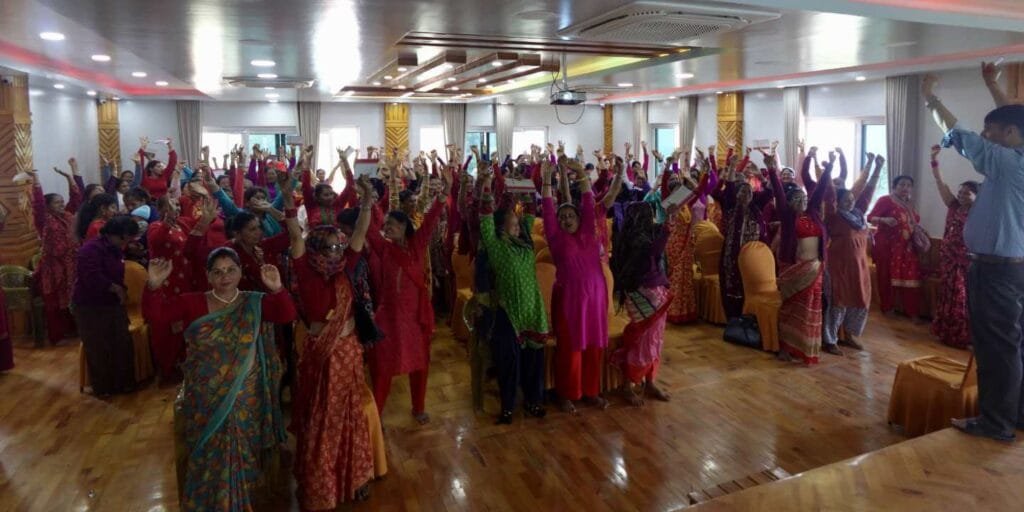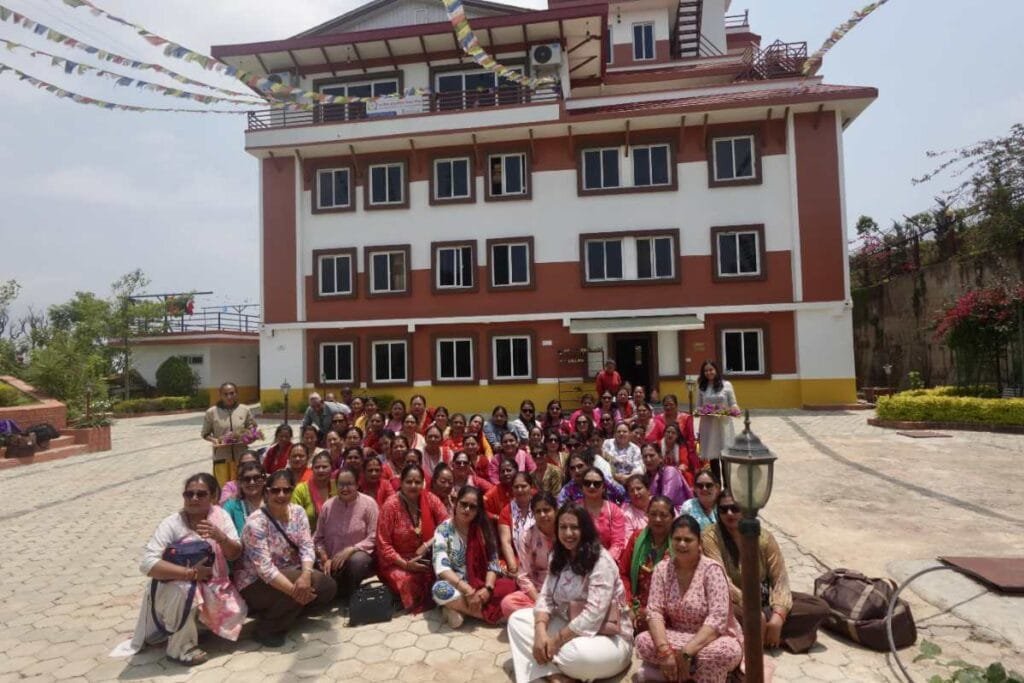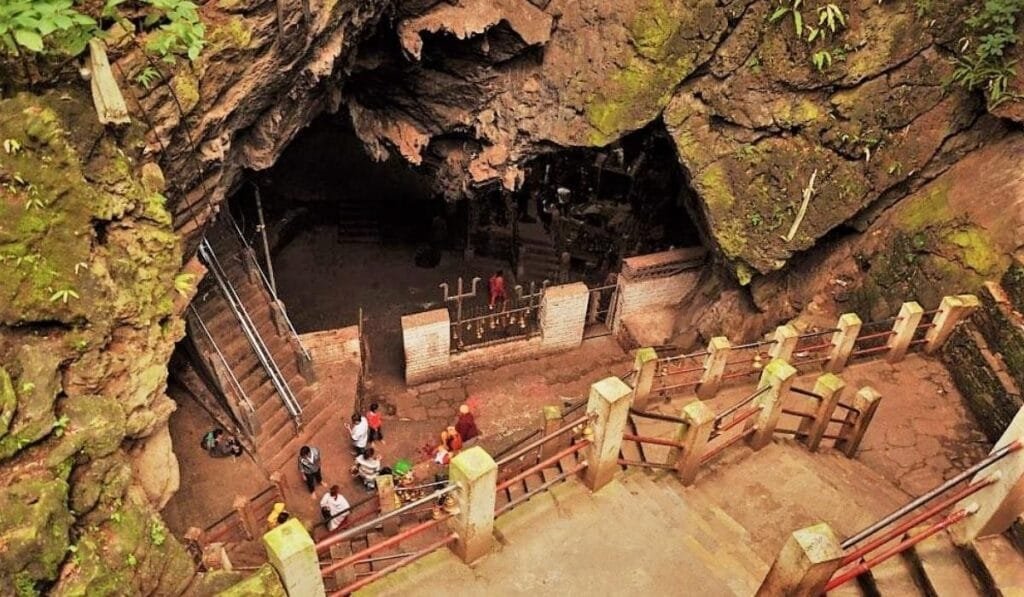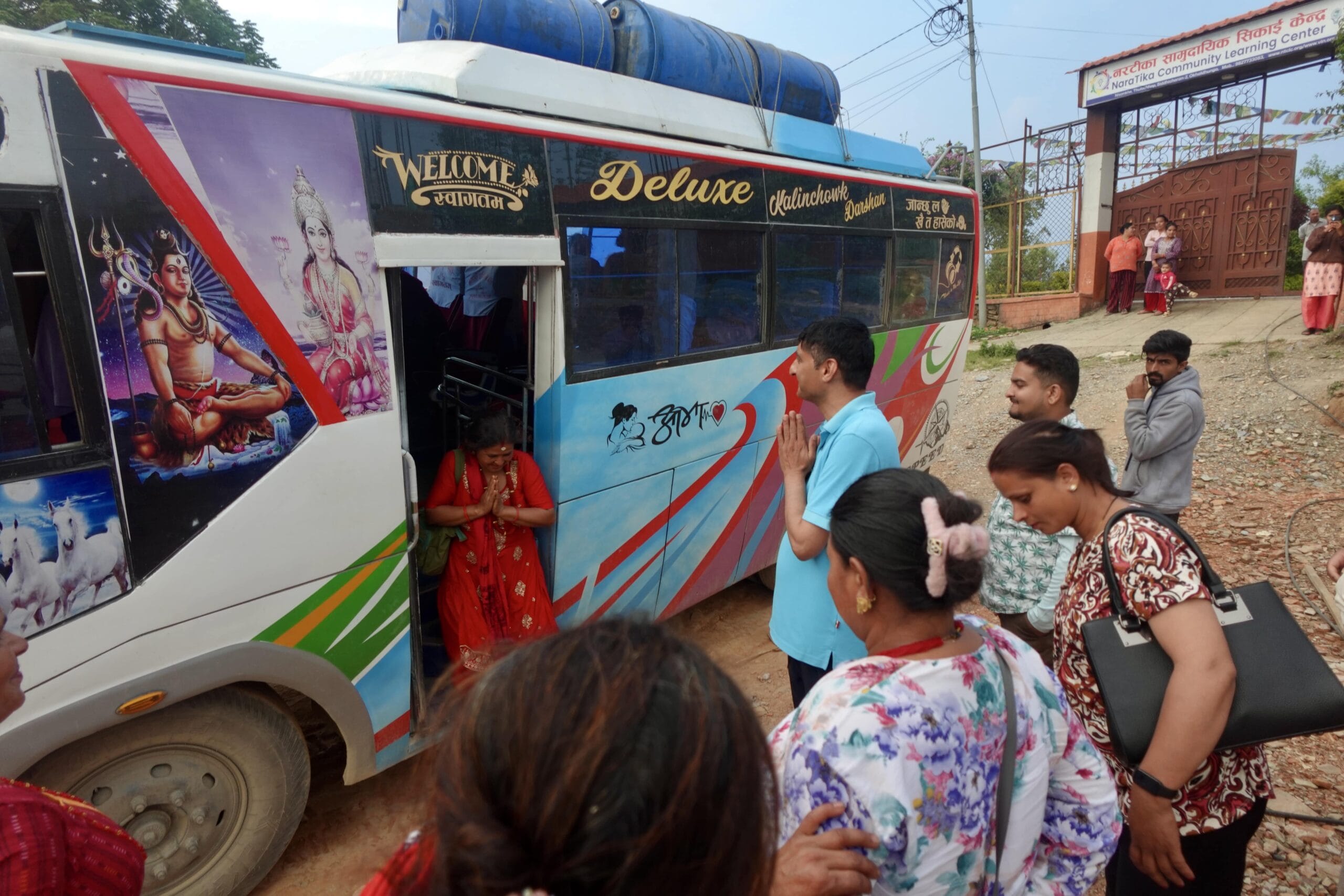Introduction
In May 2025, a group of resilient women from the JitpurPhedi Women’s Agricultural Cooperative embarked on a transformative journey to Okhaldhunga, Nepal. This excursion, organized by Volunteers Initiative Nepal (VIN), was more than just a trip—it represented a pivotal experience in women’s empowerment programs and gender equality initiatives. Through engaging workshops, cultural exchanges, and firsthand experiences, these women gained invaluable insights into cooperative development, sustainable agriculture, and leadership. Their stories highlight the profound impact of community-driven initiatives in fostering empowerment and equality.
The Essence of the Excursion
 Exploring the NaraTika Community Learning Center (CLC)
Exploring the NaraTika Community Learning Center (CLC)
The journey commenced with a visit to the NaraTika CLC ( NTCLC ), a hub for women’s leadership training and women’s rights education. Here, participants engaged in interactive sessions on cooperative management, financial literacy, and community development. These sessions enhanced their knowledge and ignited a passion for initiating similar programs in their communities.
 Immersion in Permaculture and Water Projects
Immersion in Permaculture and Water Projects
Participants delved into sustainable farming practices through hands-on experiences in permaculture. They learned about soil conservation, organic farming, and efficient water management—skills crucial for rural women empowerment projects. The exposure to these practices equipped them with tools to enhance agricultural productivity and environmental sustainability back home.
Cultural Enrichment at Haleshi
 The excursion also included a visit to the sacred Haleshi temple. This cultural immersion fostered a deeper understanding of Nepal’s rich heritage and reinforced the importance of integrating cultural awareness into gender equality advocacy.
The excursion also included a visit to the sacred Haleshi temple. This cultural immersion fostered a deeper understanding of Nepal’s rich heritage and reinforced the importance of integrating cultural awareness into gender equality advocacy.
Voices from the Journey
Pratima Lama: Embracing New Horizons
“The excursion opened my eyes to the vast possibilities within our reach. Learning about cooperative management and sustainable farming has inspired me to implement these practices in our community.” — Pratima Lama.
Unma Devkota: A Step Towards Leadership
“Participating in the workshops boosted my confidence. I feel more equipped to take on leadership roles and advocate for women’s rights in our cooperative.” — Unma Devkota.
Sharmila Thapa: Bridging Communities
“Interacting with women from different regions made me realize the strength in unity. Sharing experiences and challenges has created a support network transcending geographical boundaries.” — Sharmila Thapa.
Sabitra Khadka: Cultivating Change
“The knowledge gained from the permaculture sessions is invaluable. I am eager to apply these techniques to improve agricultural practices and promote sustainability.” — Sabitra Khadka.
The Broader Impact: VIN’s Commitment to Women’s Empowerment
VIN’s dedication to women’s empowerment programs is evident through its multifaceted approach:
- Education and Life Skills: Providing literacy classes and vocational training to enhance self-reliance. (org)
- Microcredit Cooperative Support: Facilitating access to financial resources for entrepreneurial ventures.
- Entrepreneurship Development: Offering training and mentorship to foster female entrepreneurship support.
- Trafficking Prevention: Conducting awareness campaigns to combat human trafficking and promote safety. (org)
These initiatives align with the United Nations Sustainable Development Goals, particularly SDG 5: Achieve gender equality and empower all women and girls.
Frequently Asked Questions
1. What are the primary objectives of VIN’s women empowerment programs?
VIN aims to enhance women’s socio-economic status through education, skill development, and access to financial resources, fostering independence and leadership.
2. How does the JitpurPhedi Women’s Agricultural Cooperative function?
The cooperative provides a platform for women to engage in agricultural activities, access microloans, and participate in decision-making processes, promoting women’s cooperative development.
3. What is the significance of permaculture training in these programs?
Permaculture training equips women with sustainable farming techniques, ensuring food security and environmental conservation in rural communities.
4. How does VIN address gender-based violence?
Through awareness campaigns, legal support, and safe spaces, VIN actively works to prevent gender-based violence and support survivors.
5. Can international volunteers participate in these initiatives?
Yes, VIN offers opportunities for international volunteers to contribute to gender equality volunteer programs, bringing diverse perspectives and skills to the community.
6. How are the impacts of these programs measured?
VIN employs monitoring and evaluation tools to assess program effectiveness, ensuring continuous improvement and accountability.
7. What challenges do these programs face?
Cultural resistance, limited resources, and geographical barriers are challenges that VIN addresses through community engagement and adaptive strategies.
Conclusion
The JitpurPhedi Women’s Cooperative Excursion exemplifies the transformative power of community-driven initiatives. Through exposure, education, and empowerment, women break barriers and shape a more equitable society.
Join us in this journey towards empowerment:
- Volunteer: Contribute your skills and time to support ongoing projects.
- Intern: Gain hands-on experience in community development and gender equality initiatives.
- Donate: Provide financial support to sustain and expand these impactful programs.
- Share: Help spread awareness by sharing this article with your network.
Together, we can foster a future where every woman has the opportunity to thrive.
Contact Information:
- Email: support@vin.org.np
- Phone: +977 1 4962560
Note: This article is based on firsthand accounts and program details provided by Volunteers Initiative Nepal (VIN). Please visit their official website for more information on their initiatives and how to get involved.


 Member of
Member of